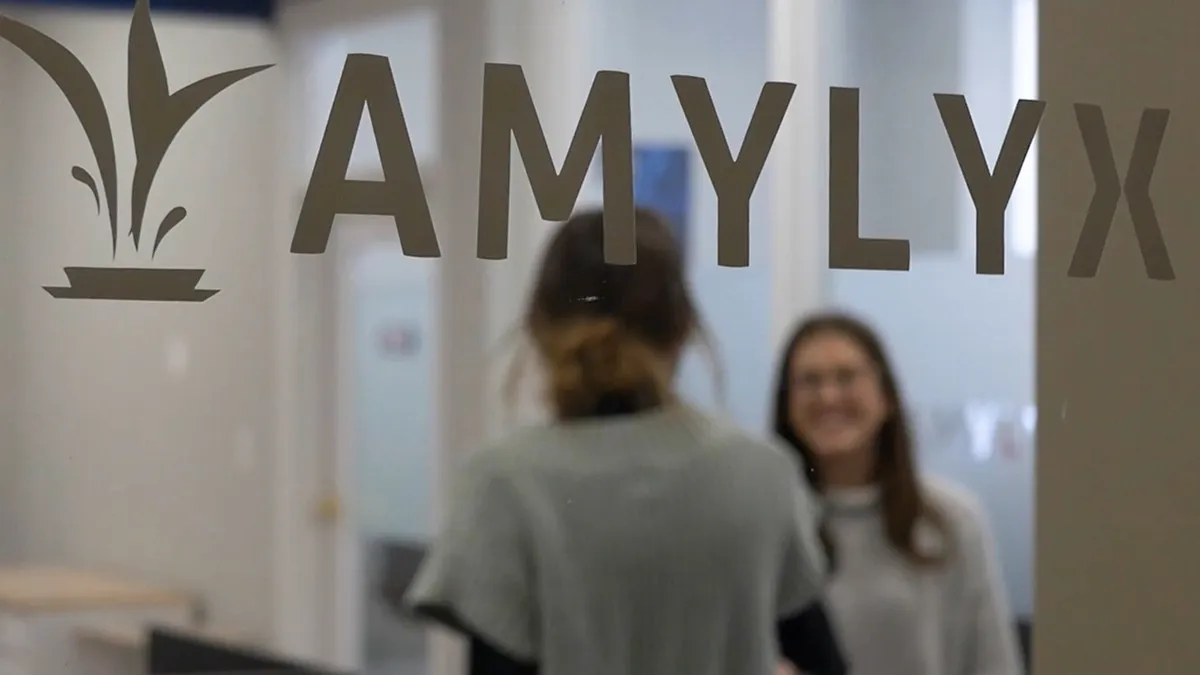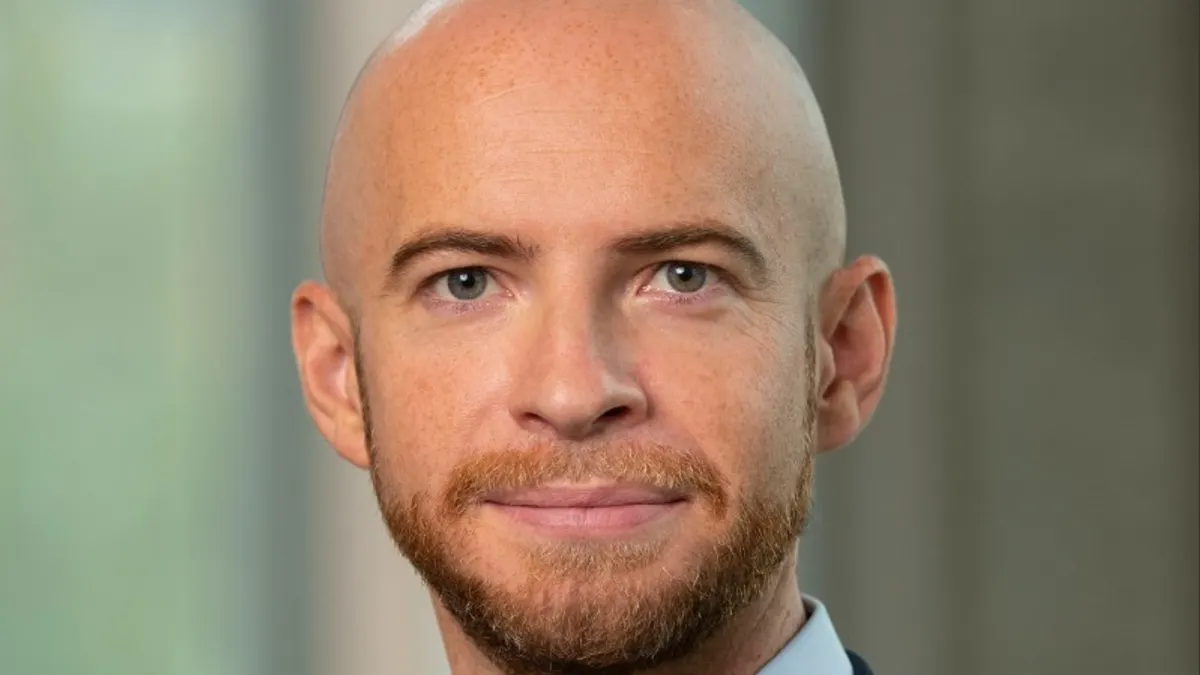The FDA just approved the first new schizophrenia drug in decades — a drug that ultimately succeeded because it once failed.
It all goes back to Andrew Miller and the light bulb moment that led to his launch of Karuna Therapeutics.

After seeing a 1997 publication by Eli Lilly that illuminated the antipsychotic potential of the compound xanomeline, but explained how researchers ultimately cast it aside due to its stomach-churning side effects, Miller had an idea. By pairing it with a second compound to preserve its potency, Miller believed the ill effects of the treatment could be negated, and in 2009, Karuna was born. Thousands of combinations later, the researchers found a match in an overactive bladder drug called trospium, leading to the development of the schizophrenia treatment KarXT (now approved as Cobenfy).
Yesterday, the highly-anticipated medication, heralded for its blockbuster potential, was greenlit by the FDA. For Miller, the approval is the summit after a long climb.
“There are times when [Cobenfy] wasn't a bright, shiny object. There was a lot of skepticism and reasonably so,” Miller. “There were a lot of things that we had to demonstrate and prove. But this is where we always had hoped to be.”
The FDA approval helped validate Bristol Myers Squibb’s $14 billion acquisition of Karuna in 2023, and is one of several new therapies re-energizing the long-neglected schizophrenia pipeline.
“It's an exciting time for us. It’s an exciting time for BMS. It's an exciting time for psychiatry,” Miller said. “We've had the good fortune of the drug development process always exceeding expectations about what a lot of people thought was possible, in terms of what we've been able to achieve.”
Moving the field forward
Until yesterday, schizophrenia drugs have made little progress since the accidental discovery of the antipsychotic chlorpromazine in the 1950s.
For more than 70 years, all the medications prescribed for the debilitating mental illness have used the same basic formula to control schizophrenia symptoms — target the dopamine D2 receptor or sometimes serotonin. These antipsychotics provide some relief to symptoms like hallucinations and paranoia, but upwards of 70% of patients stop taking them due to their side effects including weight gain or involuntary movement disorders. Cobenfy’s advantage lies in its ability to control a broad range of schizophrenia symptoms while eliminating the most serious side effects.
“It’s a totally different profile that doesn't have some of the baggage of what's out there now,” Miller said. “I believe it offers a hope of something that really will work differently and will reach different outcomes in patients.”
Inspiring competition
The rise of Cobenfy has helped drive renewed interest in a field long abandoned by Big Pharma.
“Part of what is really exciting is that you have larger companies like BMS who are coming back into psychiatry, an area where they used to be a leader,” Miller said.
Although the scientific challenges in neuropsychiatry, which ratchet up risk and failure rates, have driven companies out, that’s starting to change.
“I couldn't be more happy about larger companies becoming reinvigorated in their ideas around psychiatry and mental illness and I hope that trend continues,” Miller said.
In fact, if Cobenfy finds market dominance, it may be short-lived as new drugs in the same class pile into the pipeline.
“We expect [Cobenfy] to open the door to further innovation and other follow-on breakthroughs."

Dr. Sam Clark
CEO, founder, Terran Biosciences
“KarXT and its new mechanism of modulating muscarinic receptors represents a massive breakthrough for patients with schizophrenia as the first new therapeutic mechanism in 70 years. Due to its strong efficacy and favorable safety profile, we expect many patients to benefit from this new therapeutic option,” said Dr. Sam Clark, founder, and CEO of Terran Biosciences in an emailed statement.
Terran is hoping to give Cobenfy some earlier-than-expected competition with its investigational prodrug that becomes active after it enters the body. The treatment aims to improve on Cobenfy’s twice-daily dosing schedule with a once-daily pill and a long-acting injection. Due to its unique development strategy, this competitor could hit the market once Bristol Myers Squibb’s five-year marketing exclusivity period expires.
Other rising competitors include AbbVie, now in phase 2 with its muscarinic receptor-targeting drug emraclidine, which it acquired from Cerevel Therapeutics in a multibillion-dollar deal. Like Cobenfy it’s been shown to control a range of schizophrenia symptoms, but has a once-daily versus twice-daily treatment and potentially fewer side effects. Neurocrine Biosciences and Nxera Pharma are also developing a muscarinic receptor drug that’s in mid-stage trials. But Clark said not all close competitors have shown data that beats Cobenfy’s.
“We expect [Cobenfy] to open the door to further innovation and other follow-on breakthroughs to further improve the patient treatment paradigm,” Clark said.
Just the beginning
Miller said there’s likely room in the market for everyone.
“Once a class becomes established, there tends to be a lot of incrementally different products that come to market. In many cases, they can all be very successful from a medical and commercial perspective, alongside one another,” Miller said.
For example, today’s atypical antipsychotics, such as Zyprexa, Seroquel and Abilify, coexist successfully. Having more choices would be a boon for schizophrenia patients, who historically have had few treatment options for a condition that ranks among the top 15 worldwide in terms of disability.
“Unfortunately, drug discovery and development is a game of attrition. A lot goes in, and unfortunately, relatively little comes out at the end,” Miller said.
But despite the potential competition, Miller said Cobenfy can likely hold its own in a crowded marketplace.
“We're in a very advantageous position being potentially the first in that class,” he said. “I really like that we have a pharmacology that's active at both the M1 and M4 receptors, which I think has the possibility to offer a broader, more consistent benefit for patients, from an efficacy perspective.”
Miller sees greater potential for Cobenfy not only in schizophrenia but other mental health disorders.
“We have other clinical studies and adjunctive treatments for schizophrenia and psychosis associated with Alzheimer's and other areas that are running right now as well. So, there's a lot still to learn,” he said.
In the meantime, Miller is already looking to the next challenge.
“I have a real passion for developing new treatments,” he said, explaining that his goal is to explore ideas beyond the well-worn path. “If there's any way that I can play a role in a new product like [Cobenfy], it would be really important.”
















